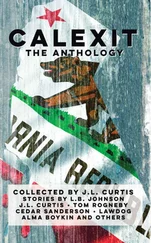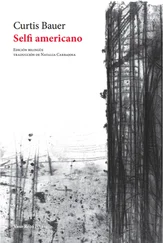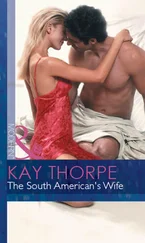Curtis Sittenfeld - American Wife
Здесь есть возможность читать онлайн «Curtis Sittenfeld - American Wife» весь текст электронной книги совершенно бесплатно (целиком полную версию без сокращений). В некоторых случаях можно слушать аудио, скачать через торрент в формате fb2 и присутствует краткое содержание. Жанр: Старинная литература, на английском языке. Описание произведения, (предисловие) а так же отзывы посетителей доступны на портале библиотеки ЛибКат.
- Название:American Wife
- Автор:
- Жанр:
- Год:неизвестен
- ISBN:нет данных
- Рейтинг книги:4 / 5. Голосов: 1
-
Избранное:Добавить в избранное
- Отзывы:
-
Ваша оценка:
- 80
- 1
- 2
- 3
- 4
- 5
American Wife: краткое содержание, описание и аннотация
Предлагаем к чтению аннотацию, описание, краткое содержание или предисловие (зависит от того, что написал сам автор книги «American Wife»). Если вы не нашли необходимую информацию о книге — напишите в комментариях, мы постараемся отыскать её.
American Wife — читать онлайн бесплатно полную книгу (весь текст) целиком
Ниже представлен текст книги, разбитый по страницам. Система сохранения места последней прочитанной страницы, позволяет с удобством читать онлайн бесплатно книгу «American Wife», без необходимости каждый раз заново искать на чём Вы остановились. Поставьте закладку, и сможете в любой момент перейти на страницу, на которой закончили чтение.
Интервал:
Закладка:
I’m pretty sure that rather than resisting this less than flattering view of herself, my grandmother shared it. In another era, I imagine she’d have made an excellent book critic for a newspaper, or even an English professor, but she’d never attended college, and neither had my parents. My grandmother’s husband, my father’s father, had died early, and as a young widow, my grandmother had gone to work in a ladies’ dress shop, waiting on Milwaukee matrons who, as she told it, had money but not taste. She’d held this job until the age of fifty—fifty was older then than it is now—at which point she’d moved to Riley with my newlywed parents.
My grandmother borrowed the majority of the books she read from the library, but she bought some, too, and these she kept in her bedroom on a shelf so full that every ledge contained two rows; it reminded me of a girl in my class, Pauline Geisseler, whose adult teeth had grown in before her baby teeth fell out and who would sometimes, with a total lack of self-consciousness, open her mouth for us at recess. My grandmother almost never read aloud to me, but she regularly took me to the library—I read and reread the Laura Ingalls Wilder books, and both the Nancy Drew and the Hardy Boys series—and my grandmother often summarized the grownup books she’d read in tantalizing ways: A well-bred married woman falls in love with a man who is not her husband; after her husband learns of the betrayal, she has no choice but to throw herself in the path of an oncoming train . . .
Such plots infused my grandmother’s bedroom with an atmosphere of intrigue enhanced by her few but carefully chosen belongings, my favorite of which was a bust of Nefertiti that rested on her bureau. The bust had been given to my grandmother by her friend Gladys Wycomb, who lived in Chicago, and it was a replica of the ancient Egyptian one by the sculptor Thutmose. Nefertiti wore a black headdress and a jeweled collar, and she gazed forward with great composure. Her name, my grandmother explained, translated as “the beautiful woman has come.”
Beside the bust were framed pictures: a photograph of my grandmother as a girl in a white dress, standing next to her parents in 1900 (so very long ago!); one of my parents at their wedding in which my father wore his army uniform and my mother wore a double-breasted sheath dress (though the photo was black and white, I knew because I’d asked my mother that her dress was lavender); a photo of my grandmother’s deceased husband, my grandfather, whose name had been Harvey and who was caught here squinting into the sun; and finally, one of me, my class picture from second grade, in which I was smiling a bit frantically, my hair parted in the center and pulled into pigtails.
Beyond her books, her photos, the Nefertiti bust, and her perfume bottle and cosmetics, my grandmother’s bedroom was actually rather plain. She slept, as I did, on a single bed, hers covered by a yellow spread on which she heaped plaid blankets in the winter. There was little on her walls, and her bedside table rarely held anything besides a lamp, a book, a clock, and an ashtray. Yet this was the place, smelling of cigarette smoke and Shalimar perfume, that seemed to me a passageway to adventure, the lobby of adulthood. In my grandmother’s lair, I sensed the experiences and passions of all the people whose lives were depicted in the novels she read.
I don’t know if my grandmother was consciously trying to make me a reader, too, but she did allow me to pick up any of her books, even ones I had small hope of understanding (I began The Portrait of a Lady at the age of nine, then quit after two pages) or ones my mother, had she known, would have forbidden (at the age of eleven, I not only finished Peyton Place but immediately reread it). Meanwhile, my parents owned almost no books except for a set of maroon-spined Encyclopaedia Britannica s we kept in the living room. My father subscribed to Riley’s morning and evening newspapers, The Riley Citizen and The Riley Courier, as well as to Esquire, though my grandmother seemed to read the magazine more thoroughly than he did. My mother didn’t read, and to this day I’m not sure if her disinclination was due to a lack of time or interest.
Because I was the daughter of a bank manager, I believed us to be well off; I was past thirty by the time I realized this was not a view any truly well-off American would have shared. Riley was in the exact center of Benton County, and Benton County contained two competing cheese factories: Fassbinder’s out on De Soto Way, and White River Dairy, which was closer to the town of Houghton, though plenty of people who worked at White River still lived in Riley because Riley, with nearly forty thousand residents, had far more attractions and conveniences, including a movie theater. Many of my classmates’ parents worked at one of the factories; other kids came from small farms, a few from big farms—Freddy Zurbrugg, who in third grade had laughed so hard he’d started crying when our teacher used the word pianist, lived on the fourth largest dairy farm in the state—but still, being from town seemed to me infinitely more sophisticated than being from the country. Riley was laid out on a grid, flanked on the west by the Riley River, with the commercial area occupying the south section of town and the residential streets heading north up the hill. As a child, I knew the names of all the families who lived on Amity Lane: the Weckwerths, whose son, David, was the first baby I ever held; the Noffkes, whose cat, Zeus, scratched my cheek when I was five, drawing blood and instilling in me a lifelong antipathy for all cats; the Cernochs, who in hunting season would hang from a tree in their front yard the deer they’d shot. Calvary Lutheran Church, which my family attended, was on Adelphia Street; my elementary school and junior high, located on the same campus, were six blocks from my house; and the new high school—completed in 1948 but still referred to as “new” when I started there in 1959—was the largest building in town, a grand brick structure supported in the front by six massive Corinthian columns and featured on postcards sold at Utzenstorf’s drugstore. All of what I thought of as Riley proper occupied under ten square miles, and then in every direction around us were fields and prairies and pastures, rolling hills, forests of beech and sugar maple trees.
Attending school with children who still used outhouses, or who didn’t eat food that wasn’t a product of their own land and animals, did not make me haughty. On the contrary, mindful of what I perceived as my advantages, I tried to be extra-polite to my classmates. I couldn’t have known it at the time, but far in the future, in a life I never could have anticipated for myself, this was an impulse that would serve me well.
FOR A FEW years, I hardly thought of that day at the grocery store with my grandmother, Andrew Imhof, and his mother. The two people who, in my opinion, ought to have been embarrassed by it—my grandmother, for making the error about Andrew’s gender, and Andrew, for having the error made about him (if any of our classmates had caught wind of it, they’d have mocked him relentlessly)—seemed unconcerned. I continued going to school with Andrew, but we rarely spoke. Once in fourth grade, before lunch, he was the person selected by our teacher to stand in front of the classroom and call up the other students to get in line; this was a ritual that occurred multiple times every day. First Andrew said, “If your name begins with B,” which meant his friend Bobby could line up right behind him, and the next thing Andrew said was “If you’re wearing a red ribbon in your hair.” I was the only girl that day who was. Also, I was facing forward when Andrew called this out, a single ponytail gathered behind my head, meaning he must have noticed the ribbon earlier. He hadn’t said anything, he hadn’t yanked on it as some of the other boys did, but he’d noticed.
Читать дальшеИнтервал:
Закладка:
Похожие книги на «American Wife»
Представляем Вашему вниманию похожие книги на «American Wife» списком для выбора. Мы отобрали схожую по названию и смыслу литературу в надежде предоставить читателям больше вариантов отыскать новые, интересные, ещё непрочитанные произведения.
Обсуждение, отзывы о книге «American Wife» и просто собственные мнения читателей. Оставьте ваши комментарии, напишите, что Вы думаете о произведении, его смысле или главных героях. Укажите что конкретно понравилось, а что нет, и почему Вы так считаете.












